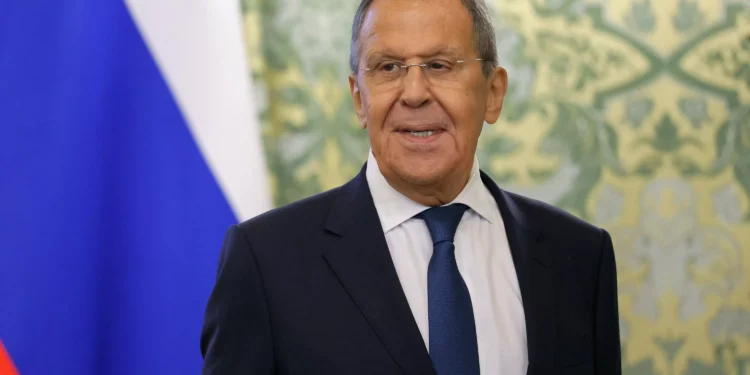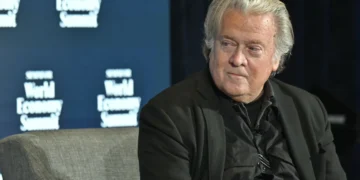Russia’s Foreign Minister Sergei Lavrov has made a bold statement, accusing the United States of orchestrating the recent attacks on the Nord Stream gas pipelines. This accusation comes after German prosecutors issued a warrant for the arrest of a Russian national in connection with the attacks.
In a press conference, Lavrov stated that it was “clear” that the U.S. was behind the attacks, which caused significant damage to the pipelines and disrupted the flow of natural gas from Russia to Germany. He also added that this was not the first time the U.S. has interfered with Russia’s energy projects, citing previous attempts to block the construction of the Nord Stream 2 pipeline.
This accusation has further escalated tensions between Russia and the U.S., which have been at odds over various issues in recent years. The Nord Stream gas pipelines, which were completed in 2011, have been a source of controversy between the two countries, with the U.S. expressing concerns over Europe’s increasing dependence on Russian gas.
The recent attacks on the pipelines have only added fuel to the fire, with both sides exchanging accusations and denials. However, Lavrov’s statement has raised eyebrows and sparked a debate on the role of the U.S. in the attacks.
The German prosecutors’ warrant for the arrest of a Russian national has also raised questions about the evidence linking the attacks to the U.S. While the U.S. has denied any involvement, Lavrov’s statement has put the spotlight on the country’s actions and motives.
The Nord Stream gas pipelines are crucial for Russia’s economy, as they provide a direct route for the country to supply natural gas to Europe. The attacks have not only caused significant damage but have also disrupted the flow of gas, leading to a loss of revenue for Russia.
Furthermore, the attacks have also affected Germany, which heavily relies on Russian gas for its energy needs. The disruption in the gas supply has caused inconvenience to the German people and has also raised concerns about the country’s energy security.
Lavrov’s statement has also sparked a debate on the impact of the attacks on the relationship between Russia and Germany. The two countries have maintained a strong economic and political partnership, and the Nord Stream gas pipelines have been a symbol of this partnership. However, the recent attacks have strained this relationship, and Lavrov’s accusation has only added to the tension.
The U.S. has been a vocal critic of the Nord Stream gas pipelines, citing concerns over Europe’s energy security and Russia’s influence. However, many have questioned the U.S.’s motives, with some suggesting that the country is trying to protect its own interests by disrupting Russia’s energy projects.
The recent statement by Lavrov has also raised questions about the U.S.’s role in global politics and its approach towards other countries. The accusation has been met with skepticism by some, who believe that the U.S. would not resort to such actions to achieve its goals.
In the midst of these accusations and denials, it is essential to remember the impact of these attacks on the environment. The Nord Stream gas pipelines are a vital source of clean energy for Europe, and any disruption in the flow of gas can have severe consequences for the environment.
It is crucial for all parties involved to come together and find a peaceful resolution to this issue. The Nord Stream gas pipelines are an essential project for both Russia and Europe, and any further attacks or disruptions can have severe consequences for the economy and the environment.
In conclusion, Foreign Minister Sergei Lavrov’s statement has brought to light the ongoing tensions between Russia and the U.S. and has sparked a debate on the role of the U.S. in the recent attacks on the Nord Stream gas pipelines. It is crucial for all parties to work towards finding a peaceful resolution and ensure the uninterrupted flow of gas to Europe. Let us hope that this issue is resolved amicably, and the Nord Stream gas pipelines continue to be a symbol of the strong partnership between Russia and Germany.






